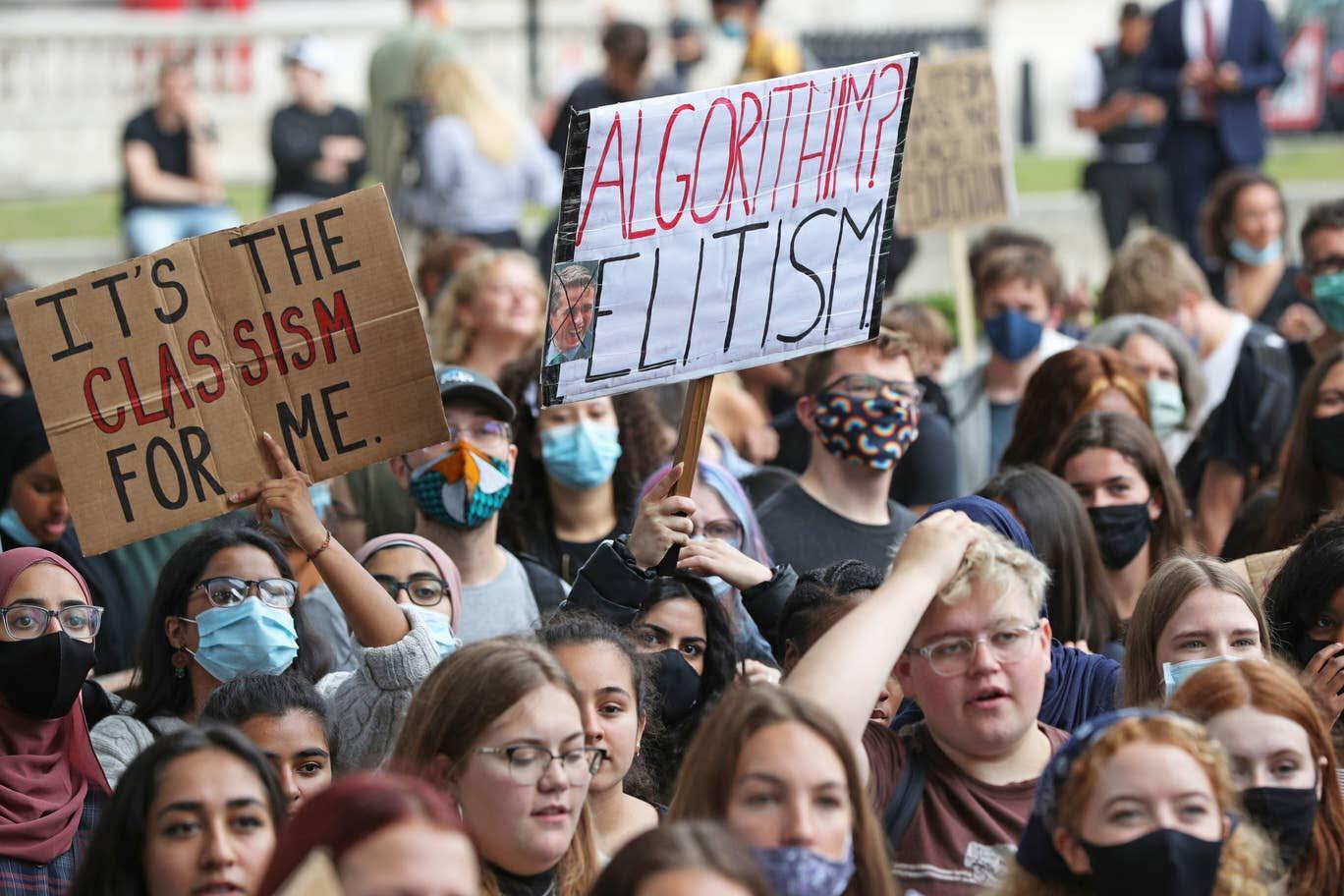Last Monday, the government announced in an astonishing U-turn that A-level and GCSE grades would be calculated by teacher assessments rather than the standardised computer algorithm. The U-turn was made in response to widespread outrage over the algorithm’s inconsistencies which led to many students receiving grades that did not reflect their ability. However, the U-turn has created a new set of complications for students and universities.
On results day nearly 40% of students’ predicted results were downgraded with pupils from disadvantaged areas suffering disproportionately.
Liz Heaver, an English literature teacher at Sir Roger Manwood’s school, stated ‘55% of A-level English literature students at our school were downgraded. Despite the claims that the algorithm utilised the results of the previous 3 years, in that period we have consistently achieved many more A’s and B’s than the 2020 results.’
Following protests, widespread public pressure and a media backlash the Education Secretary, Gavin Williamson, attested to the algorithm’s flaws and reverted to calculating grades using teacher assessments. A-level and GCSE students now have the option to choose between the algorithm grade or the centre-assessed grade; whichever is the higher.

Both the head of OFQUAL Roger Taylor and Gavin Williamson have issued an apology with the education secretary stating he deeply regrets the ‘significant inconsistencies’ produced by the model and the distress it has caused families. As a result of the U-turn, the proportion of students gaining an A grade or above has risen from 27.6% to 38.1%. However, for many students it is too little too late.
Lauren Chapman, a year 13 student, said ‘On results day I was downgraded from AAC to BBD which resulted in the loss of a £10,000 scholarship and a place at Loughborough University. The government’s decision to revert to teacher assessments led to my predicted grades being restored and an offer from Loughborough University for 2021. Next year’s offer is great, but I am now in a position where I have to readdress this year’s plans whilst facing the loss of my scholarship’.
A further consequence of the fiasco is that the pressure has now shifted onto universities. UCAS has stated that as a result of the U-turn, 15,000 students who were initially rejected by their first-choice institution now met the conditions of their offer. Yet, universities are struggling to offer leniency to these students due to all of the places being allocated on results day. It is a legal requirement for universities to provide pupils with a place when they meet the conditions of their offer. Top universities are in a position where there are more students with offers than places available.
In response, the government has removed caps on the number of university places. However, accommodation, staffing levels and social distancing guidelines constrain universities ability to accommodate for the increased influx of students.
The university of Leeds admissions team has responded to the issue, stating ‘if these (A-level results) meet or exceed the conditions of your offer and subject to any capacity constraints and wellbeing, health and safety considerations, we will do everything we possibly can to confirm your place for September 2020.’
The statement reveals that the University of Leeds will attempt to accept as many students as possible but that there are physical limits in meeting offers with places. Due to capacity issues, Durham university is offering a financial incentive and a guarantee of accommodation to students who defer until 2021.
Lower-ranked universities face the opposite problem. An increase in grades and the number of students with offers from top universities means less-prestigious universities will have fewer students than expected. The imbalance has led to calls for the government to provide significant financial support for the universities that will lose students as a result of the U-turn.
At this stage, it is difficult to ascertain the number of pupils who will choose to take a gap year, but it is probable that a significant proportion of students, such as Lauren, will favour attending university in 2021 for the chance to study at their first-choice institution. For young adults, an unexpected gap year taken during a time where there are limited opportunities to work or travel is the consequence they are facing.

In addition, more pupils taking a year out means next year’s student cohort face the prospect of increased competition for 2021 university places. The next cohort will be at a disadvantage due to competing against students with statistically better grades and a higher number of students deferring their places at top universities until 2021. The U-turn to centre-assessed grading is at the expense of next year’s cohort’s opportunities.
The Institute for Fiscal Studies blames the government for failing both students and universities. The IFS claim that the problems surrounding A-level results were entirely avoidable and that results ‘should never have been released before being subject to scrutiny beyond Ofqual.’ Furthermore, it is clear that the allocation of university places should have been postponed and the new model for calculating results given space to adjust.
Ultimately, the government ‘should not have had to rely on shocked 18-year-olds on results day to realise there was a problem’. The IFS conclude that the government’s decision to use a flawed algorithm ‘will have repercussions for universities and students, now and in the coming years.’
Written by Molly Tudor.
Header image via Evening Standard.

